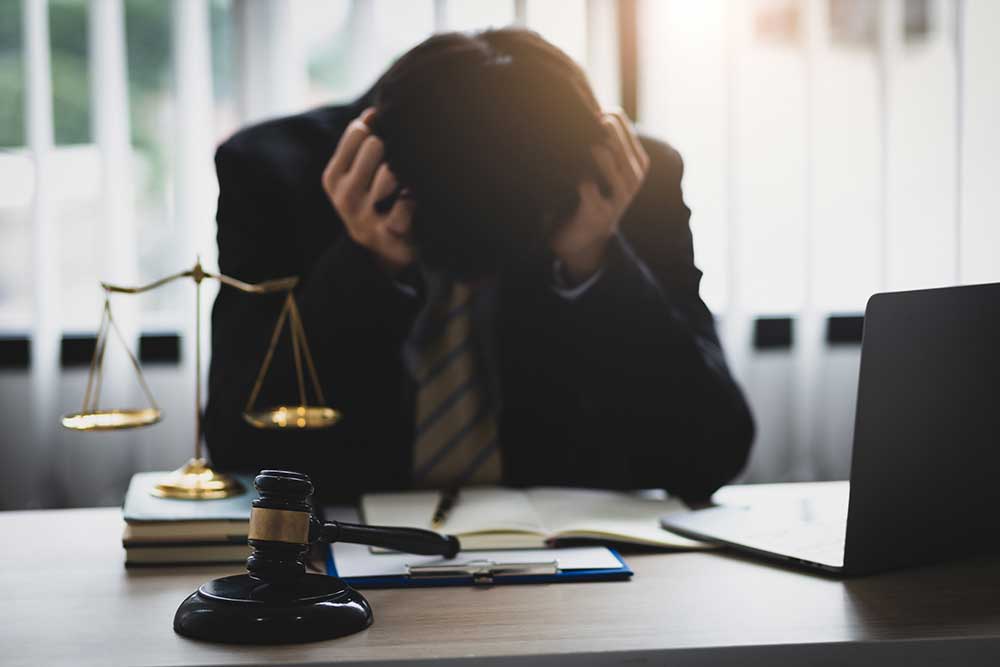 The legal profession is often regarded as one of the most prestigious and intellectually challenging career paths. Lawyers are known for their resilience, analytical skills, and ability to handle complex legal matters under pressure. However, beneath the polished exterior of many legal professionals lies a hidden crisis—addiction. The intense stress, long hours, and relentless expectations of the profession have driven many lawyers to seek solace in alcohol, drugs, and other addictive behaviors.
The legal profession is often regarded as one of the most prestigious and intellectually challenging career paths. Lawyers are known for their resilience, analytical skills, and ability to handle complex legal matters under pressure. However, beneath the polished exterior of many legal professionals lies a hidden crisis—addiction. The intense stress, long hours, and relentless expectations of the profession have driven many lawyers to seek solace in alcohol, drugs, and other addictive behaviors.
The High-Stress Environment of Law
Lawyers face immense pressure from multiple fronts, including demanding clients, tight deadlines, and the expectation to win cases or close high-stakes deals. The constant scrutiny, adversarial nature of legal proceedings, and financial burdens associated with legal practice contribute to significant stress and anxiety. The pressure to maintain a flawless professional image can make it difficult for lawyers to admit their struggles or seek help.
A Culture of Alcohol and Substance Abuse
The legal profession has long been associated with a culture of drinking. From celebratory toasts after a courtroom victory to networking events where alcohol is freely available, drinking is often seen as a normal part of legal life. Unfortunately, this culture can lead to excessive alcohol consumption, masking deeper issues such as burnout, anxiety, and depression. Many lawyers also turn to stimulants like Adderall or cocaine to stay awake and maintain high levels of performance, creating a dangerous cycle of dependency.
The Stigma of Seeking Help
Despite the prevalence of addiction among legal professionals, there remains a strong stigma against seeking help. Lawyers are expected to be problem solvers, and admitting to personal struggles can be perceived as a sign of weakness. Many fear that acknowledging their addiction could damage their reputations, lead to job loss, or result in disciplinary action by their state bar association. As a result, many attorneys suffer in silence, allowing their addiction to worsen over time.
The Impact on Professional and Personal Lives
Addiction doesn’t just affect lawyers’ professional lives; it also takes a toll on their personal relationships and overall well-being. Substance abuse can lead to ethical lapses, impaired judgment, and even disciplinary action or disbarment. Additionally, strained relationships with family and friends, declining physical health, and financial difficulties are common consequences of unchecked addiction.
Steps Toward Recovery and Change
Recognizing the severity of addiction within the legal profession, various organizations and law firms are taking steps to address the issue. Lawyers Assistance Programs (LAPs) offer confidential support and treatment resources to attorneys struggling with addiction. Additionally, law firms are beginning to implement wellness initiatives, mental health programs, and policies that encourage work-life balance.
To combat the hidden crisis, the legal industry must foster a culture that prioritizes mental health and wellness. Open conversations about addiction, increased access to treatment resources, and a supportive work environment can make a significant difference in addressing this pervasive issue.
Conclusion
The hidden addiction crisis among lawyers is a growing concern that demands attention and action. While the legal profession is built on the pursuit of justice, it is crucial that it also upholds justice for its own members by providing support, understanding, and resources to those struggling with addiction. By breaking the silence and eliminating stigma, the legal community can help its professionals find a path to recovery and lasting well-being.
